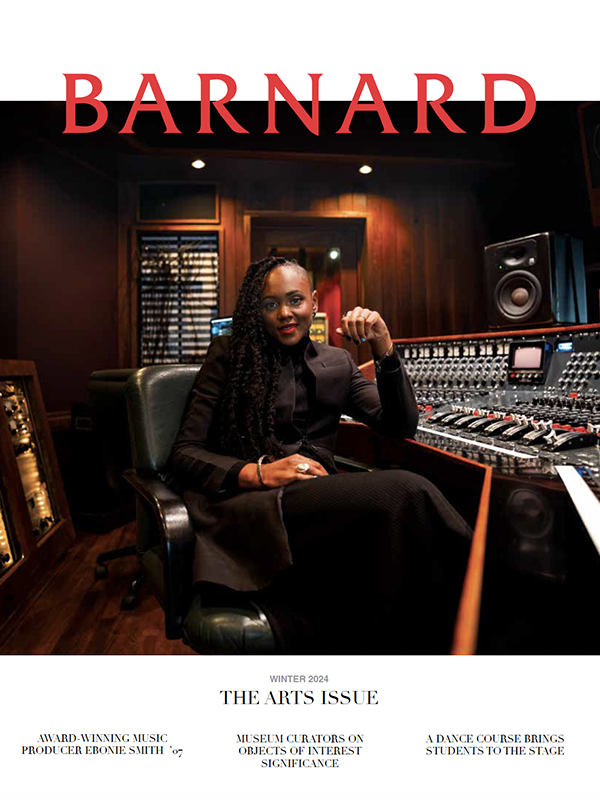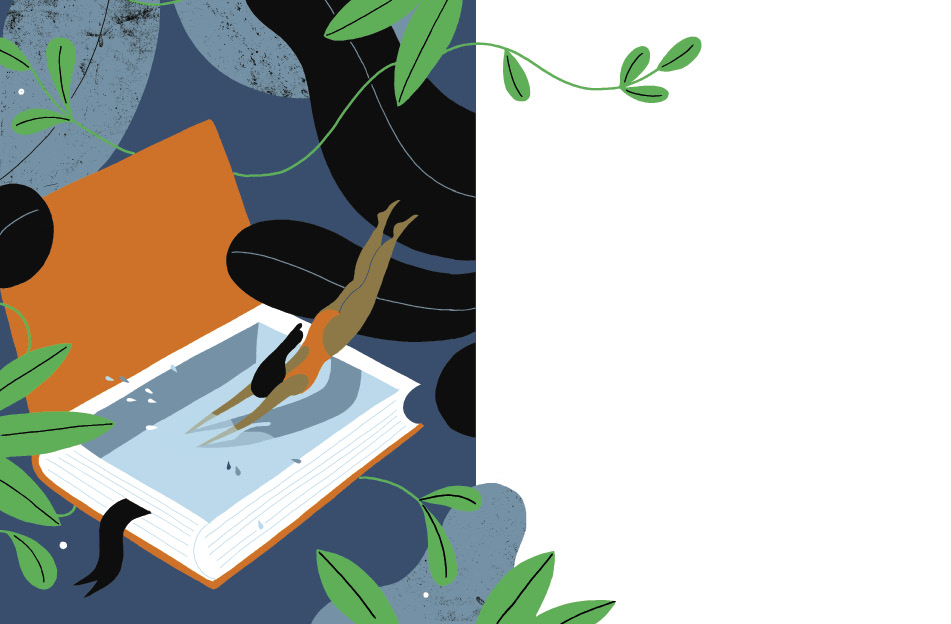 Summer is an ideal time to dive into a great read, and Barnard alumnae and professors have penned enticing books in a variety of genres. Also of note are several Barnard authors who have recently received prestigious prizes. English Professor Hisham Matar was awarded the 2017 Pulitzer Prize, the inaugural PEN/Jean Stein Book Award, and the inaugural Rathbones Folio Prize for his memoir The Return: Fathers, Sons, and the Land in Between. Idra Novey ’00 won the Jewish Book Council’s 2017 Sami Rohr Prize for Jewish Literature for her novel Ways to Disappear. And Jhumpa Lahiri ’89 was awarded the 2017 PEN/Malamud Award for Excellence in the Short Story for her body of work. The New York Times praised Edwidge Danticat ’90 latest as a book that "provides a splendid example of death writing." The following contain some other great summer reads. (Read an interview with Mary Gordon about her latest book here.)
Summer is an ideal time to dive into a great read, and Barnard alumnae and professors have penned enticing books in a variety of genres. Also of note are several Barnard authors who have recently received prestigious prizes. English Professor Hisham Matar was awarded the 2017 Pulitzer Prize, the inaugural PEN/Jean Stein Book Award, and the inaugural Rathbones Folio Prize for his memoir The Return: Fathers, Sons, and the Land in Between. Idra Novey ’00 won the Jewish Book Council’s 2017 Sami Rohr Prize for Jewish Literature for her novel Ways to Disappear. And Jhumpa Lahiri ’89 was awarded the 2017 PEN/Malamud Award for Excellence in the Short Story for her body of work. The New York Times praised Edwidge Danticat ’90 latest as a book that "provides a splendid example of death writing." The following contain some other great summer reads. (Read an interview with Mary Gordon about her latest book here.)
There Your Heart Lies
by Mary Gordon '71
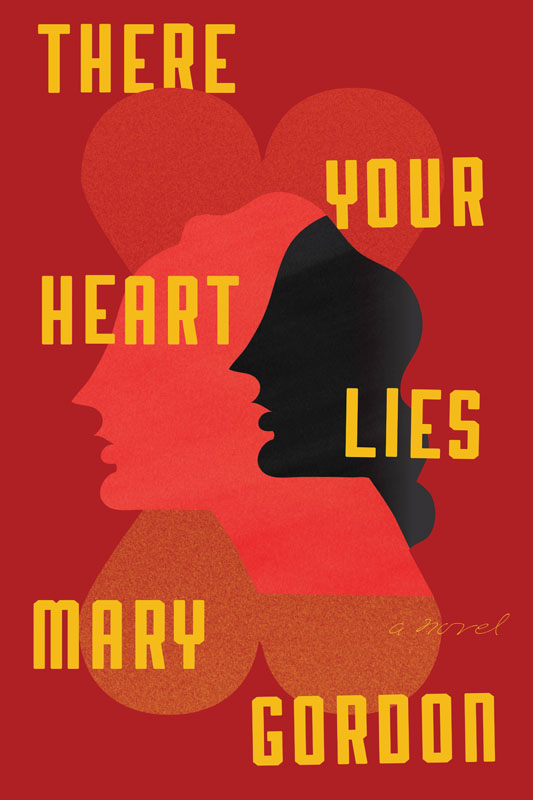
A bond between a grand-mother in her nineties and her granddaughter is at the center of the latest novel by Gordon, the Millicent C. McIntosh Professor in English and Writing. For decades, Marian has kept secret her volunteer work in the Spanish Civil War, which made her a witness to brutality on both sides and a prisoner of a perilous romance. Marian’s story compels her granddaughter to visit Spain to reconcile her grandmother’s past with her own uncertain future. There Your Heart Lies explores how character is forged at a particular moment in history and passed down through the generations.
At Home in the World: Women Writers and Public Life, from Austen to the Present
by Maria DiBattista and Deborah Epstein Nord '71
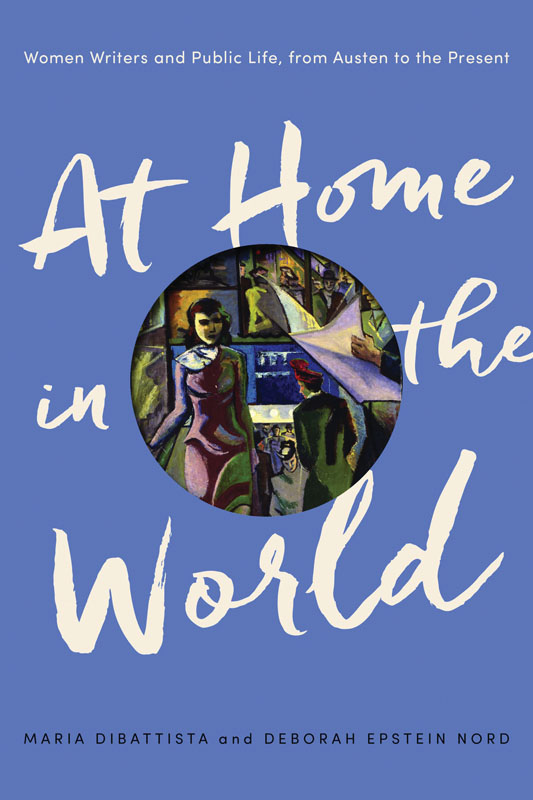
The authors take a fresh look at some of the world’s most cherished literature by women and find that seemingly traditional works by British, American, and other English-language writers are defined less by domestic concerns than by an engagement with public life. The book explores canonical figures such as Jane Austen, Charlotte Brontë, Gertrude Stein, and Toni Morrison; marginalized writers such as Mary Antin and Martha Gellhorn; and contemporary figures such as Nadine Gordimer, Edwidge Danticat ’90, and Jhumpa Lahiri ’89.
My Utmost: A Devotional Memoir
by Macy Halford '01
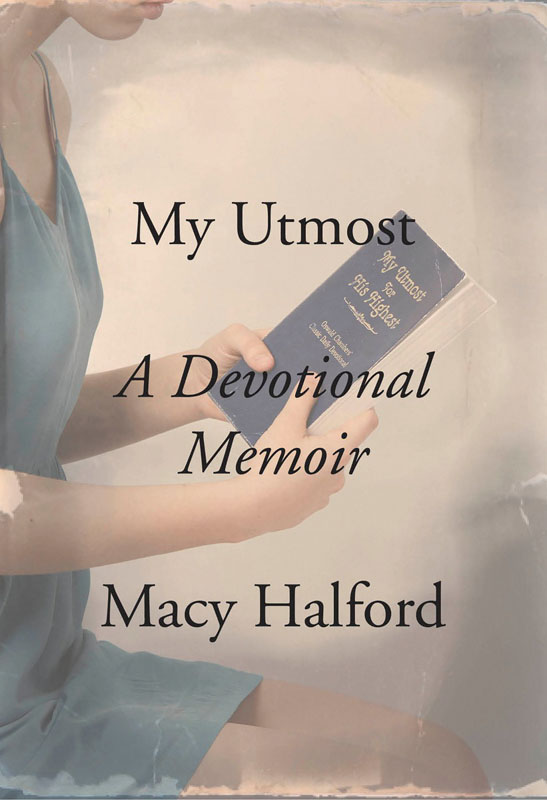
Raised in an Evangelical household in Dallas, Halford departs for Barnard and a career in journalism. Though she embraces the secular world, she continues to read My Utmost for His Highest—a cherished Christian text by Scottish preacher Oswald Chambers—every day. She eventually quits her coveted job at The New Yorker to explore the devotional’s unique ability to bridge her two worlds. Halford’s memoir, which intertwines reflections on Chambers’ life and her own, examines what it means to be a Christian, a reader, and a seeker in the 21st century.
Listening to Images
by Tina Campt
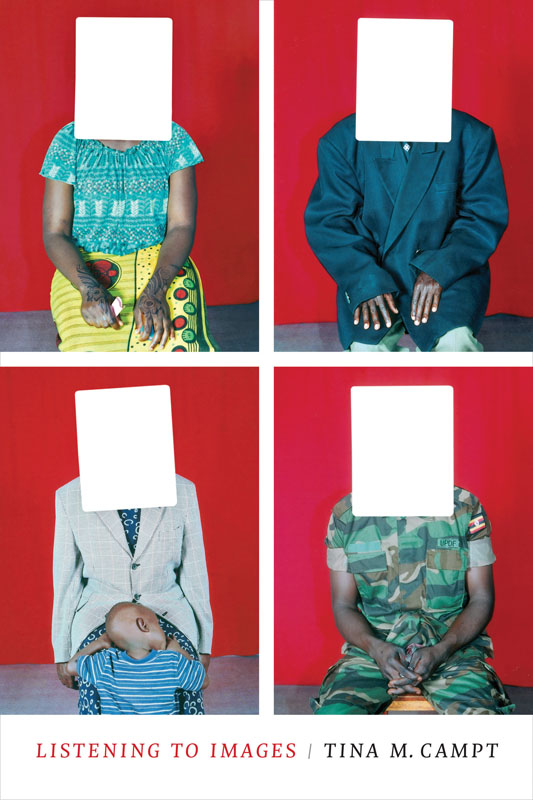
Rural African women in the late 19th century. A prison in Cape Town. Mug shots of the Freedom Riders. These subjects, captured in photographs, are examined in Listening to Images by Campt, the Claire Tow and Ann Whitney Olin Professor of Africana and Women’s, Gender, and Sexuality Studies. The images— of black subjects taken throughout the black diaspora—were originally intended to dehumanize, police, and restrict their subjects. But when Campt examines this lost archive of historically dismissed photographs, she discovers a quiet intensity and quotidian practices of refusal.
Lifting the Veil on Depression
Daphne Merkin ’75 opens her memoir This Close to Happy by musing, “Lately, I’ve been thinking about the allure of suicide again.” In this gripping memoir, which Merkin spent 16 years trying to write, she brings us the unvarnished story of her lifelong struggle with clinical depression.
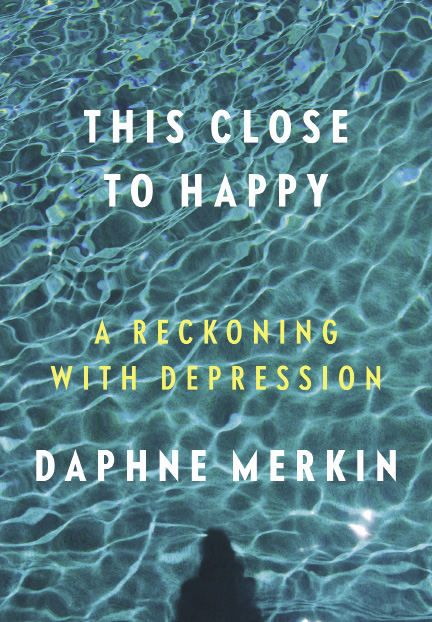
“I wanted to speak for the silent sufferers, so they realize they aren’t alone,” she says. “Despite our confessional culture, ideas of self-destruction are still hard to talk about.”
Merkin grew up in an apartment on Park Avenue, one of six children raised in an Orthodox Jewish home by parents who fled the Nazis. The children were largely raised by a cold-hearted nanny. Merkin was first sent for a psychiatric evaluation in grade school.
At Barnard, Merkin’s interest in writing flourished. She worked on the literary magazine, wrote reviews for The Barnard Bulletin, and won the Amy Loveman Memorial Prize for poetry before turning 20. Soon after graduating, she was writing reviews for The New York Times and The New Republic. After a year in the typing pool at The New Yorker, she attended Columbia’s graduate program in English literature and thrived as a critic. Later, she was a book editor at publisher Harcourt Brace Jovanovich and a staff writer at The New Yorker.
Throughout her blossoming career, Merkin suffered from depression that was at times debilitating, sending her to the hospital three times. She details the agony of these episodes with disarming candor and even humor. A combination of medication and therapy ultimately helped her, but she knows she may be pulled under again. “It was important to talk about a lifetime’s worth of depression,” she says.
Nevertheless, she ends the memoir with optimism, noting that it has been 11 years since she has been hospitalized. “I look ahead with guarded optimism,” she says. “Emphasis on guarded.”
First Words
— An excerpt from Flâneuse by Lauren Elkin '00
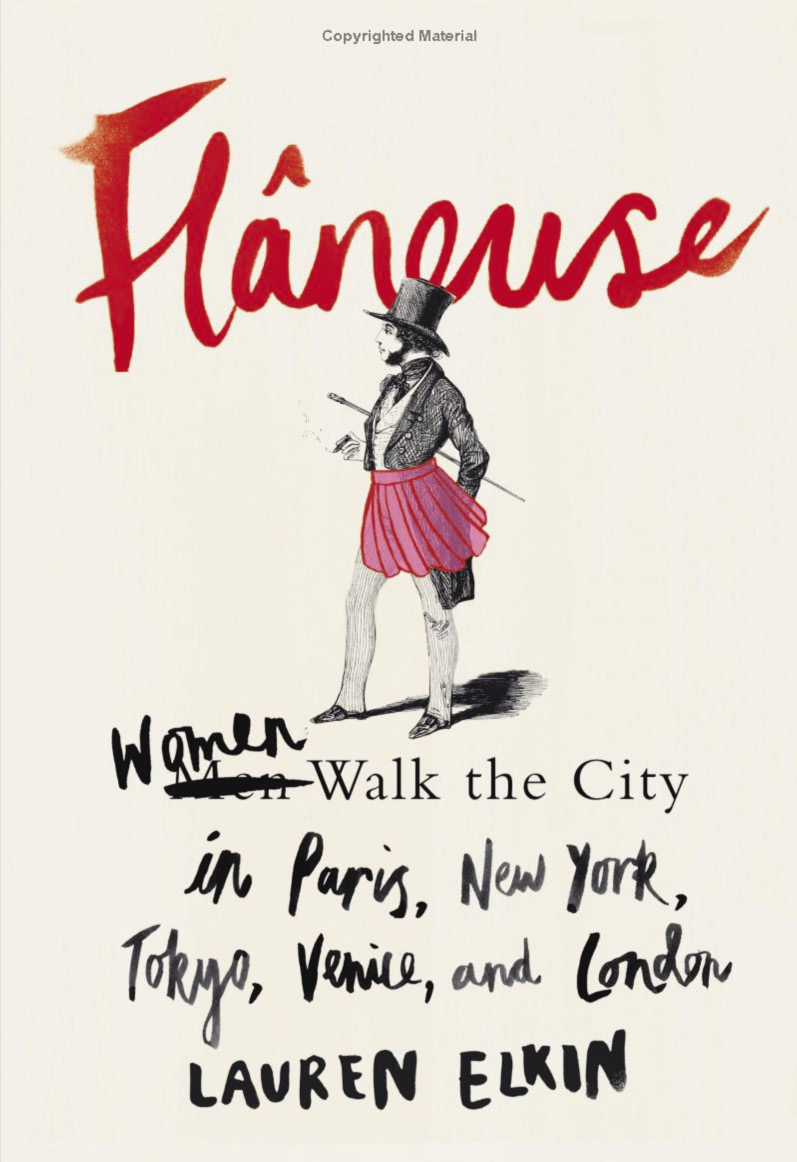
“Coming from suburban America, where people drive from one place to another, walking for no particular reason was a bit of an eccentric thing to do. I could walk for hours in Paris and never ‘get’ anywhere, looking at the way the city was put together, glimpsing its unofficial history here and there, a bullet in the facade of an hôtel particulier , leftover stencilling way up on the side of a building for a flour company or a newspaper that no longer existed (which some inspired graffiti artist had used as an invitation to add his own work) or a row of cobblestones revealed by roadworks, several layers below the crust of the current city, slowly rising ever upward.
I was on the lookout for residue, for texture, for accidents and encounters and unexpected openings. My most meaningful experience with the city was not through its literature, its food, or its museums, not even through the soul-scarring affair I carried on in a garret near the Bourse, but through all that walking. Somewhere in the 6th arrondissement I realized I wanted to live in a city for the rest of my life, and specifically, in the city of Paris. It had something to do with the utter, total freedom unleashed from the act of putting one foot in front of the other.”
Children’s Corner
Haiti Is
by Cindy Similien-Johnson '07, illustrated by Paola Velez
For ages 3 to 5, Haiti Is celebrates the author’s childhood memories of Haiti. Similien-Johnson runs a grass-roots mentorship program for girls in Brooklyn and gives lessons in Haitian cooking.
It's a Penguin's Life
by Tassneen Bashir '21
Confessions of a High School Disaster
by Emma Chastain '01
Rainbow Weaver
by Linda Elovitz Marshall '71, illustrated by Elisa Chavarri
Seven Days of You
by Cecillia Vinesse '09
New & Upcoming Releases
Fiction
Murder in the Palace
by Bonnie Bongwan Cho Oh ’59
White Lead
by Susan Daitch ’77
Time’s a Thief
by (Mary) B.G. Firmani ’90
The Jane Austen Project
by Kathleen A. Flynn ’88
Eve’s Destiny
by Renée Y. Lewis ’90
Homesick for Another World
by Ottessa Moshfegh ’02
Great With Child
by Sonia Taitz ’75
Nonfiction
The Grit Guide for Teens: A Workbook to Help You Build Perseverance, Self-Control, and a Growth Mindset
by Caren Baruch-Feldman ’90
Therapeutic Communication in Mental Health Nursing
by Shira Birnbaum ’84
Bound Feet, Young Hands
by Laurel Bossen ’68 and Hill Gates
Europe after Empire: Decolonization, Society, and Culture
by Elizabeth Buettner ’89
European Archaeology as Anthropology: Essays in Memory of Bernard Wailes
edited by Pam J. Crabtree ’72 and Peter Bogucki
The Art of Death
by Edwidge Danticat ’90
100 Jewish Things to Do Before You Die
by Barbara Davis ’65
Insider London: A Curated Guide to the Most Stylish Shops, Restaurants, and Cultural Experiences
by Rachel Felder ‘89
Personalized Medicine: Promises and Pitfalls
by Gloria Gronowicz ’73
Down the Up Staircase: Three Generations of a Harlem Family
by Bruce Haynes and Syma Solovitch ’79
The Magic of Concepts
by Rebecca E. Karl ’82
Celebrating the Wounded Healer Psychotherapist: Pain, Post-Traumatic Growth and Self-Disclosure
by Sharon Klayman Farber ’65
The Oxford Handbook of Dance and Politics
edited by Rebekah J. Kowal ’88, Gerald Siegmund, and Randy Martin
Organize Your Way: Simple Strategies for Every Personality
by Colleen “Kelly” McMenamin ’95 and Katie McMenamin
See Yourself X: Human Futures Expanded
by Madeline Schwartzman ’83
Soundtrack of the Revolution: The Politics of Music in Iran
by Nahid Siamdoust ’00
Where Bartenders Drink
by Adrienne Stillman Krausz ’08
New World A-Coming
by Judith Weisenfeld ’96
Set in Stone
by Jenna Weissman Joselit ’73
Biography & Memoir
Four Seasons in a Day: Travel, Transitions and Letting Go of the Place We Call Home
by Deborah L. Jacobs ’77
Friendship Matters
by Sanda Neshin Bernstein ’69 and Wendy Satin Rapaport
Memoirs of a Hopeful Pessimist: A Life of Activism Through Dialogue
by Debbie Weissman ’70
Dancing with Cancer: Maladies and Miracles in Stem Cell Transplantland
by Barry S. Willdorf CLS ’69 and Bonnie Willdorf ’70
Poetry
The Bees Have Been Canceled
by Maya Catherine Popa ’11
No Way Out but Through
by Lynne Sharon Schwartz ’59
Baltimore Girls
by Lynne Spigelmire Viti ’69
The Opposite of Claustrophobia: Prime’s Anti-Autobiography
by Eileen R. Tabios ’82
Faculty
Abstraction in Reverse
by Alexander Alberro, Virginia Bloedel Wright ’51 Professor of Art History
Working Conditions: The Writings of Hans Haacke
edited by Alexander Alberro, Virginia Bloedel Wright ’51 Professor of Art History
Into Sūr’s Ocean: Poetry, Context, and Commentary
by John Hawley, Claire Tow Professor of Religion
Jane Crow: The Life of Pauli Murray
by Rosalind Rosenberg, Professor Emerita of History
Dictators Without Borders: Power & Money in Central Asia
by Alexander Cooley, Claire Tow Professor of Political Science and Director of Columbia University’s Harriman Institute
— Illustrations by Karolin Schnoor
